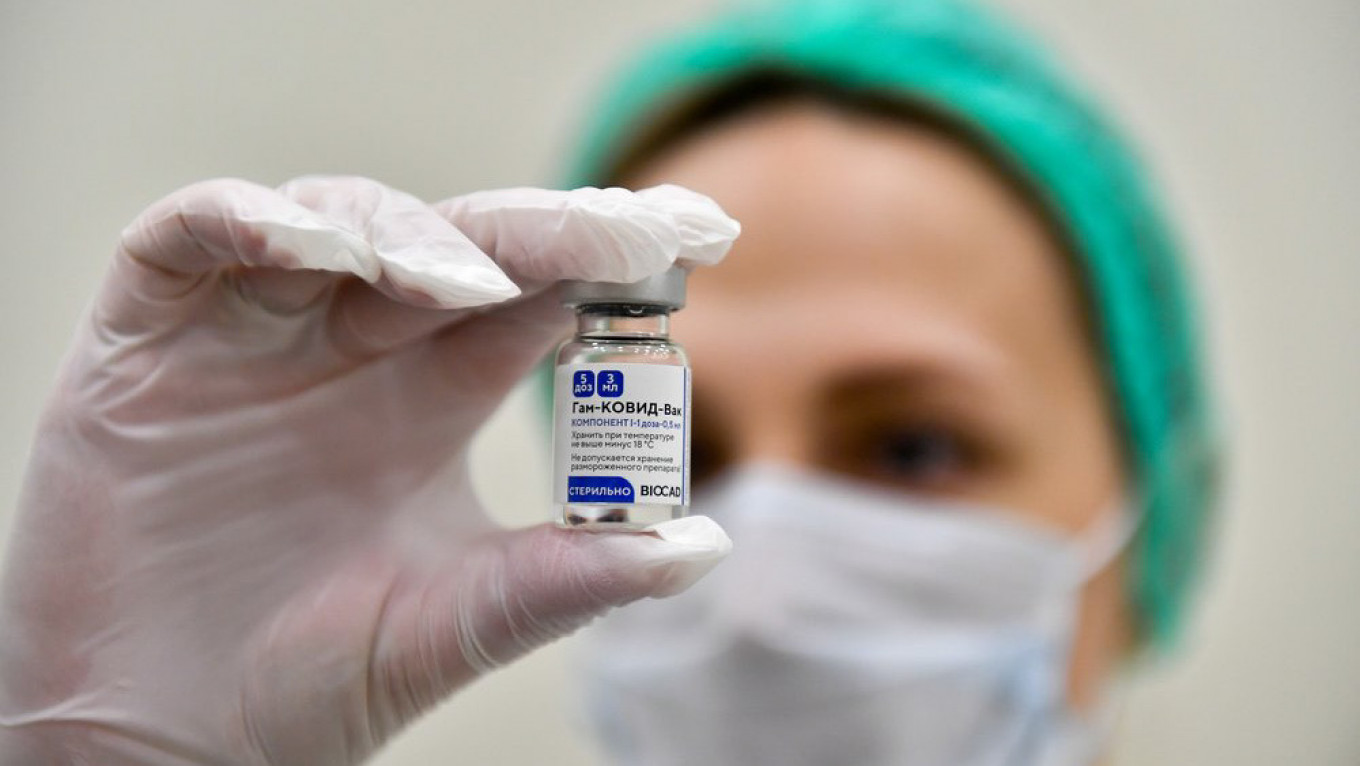
When I decided to take advantage of Moscow Mayor Sergei Sobyanin’s widening of the list of professions eligible for the Sputnik V coronavirus vaccine to include journalists, reactions from my Russian friends ranged from shock to concern.
“You’re more of a patriot than I am,” said one.
Despite Russia’s proven track record of scientific breakthrough in space, chemistry and physics, opinion polling consistently shows that most of its citizens are wary of the country’s first-in-the-world anti-Covid jab.
In December, according to the independent Levada Center pollster, only 38% of Russians were considering receiving Sputnik, while In January, just 30% of Russians told a Gallup poll they believed a majority of their fellow citizens would take any Covid vaccine.
With Moscow then only vaccinating a few thousand patients daily, it wasn’t hard to get an appointment.
In theory, vaccination is by prior arrangement. Those who qualify — doctors, teachers, social workers and, for whatever reason, journalists — are invited to pre-register online.
To receive the vaccine, I’d need a pile of documents: a registration at my local clinic, a state-backed health insurance policy linked to Moscow’s health system and a note confirming my employment at a mass information outlet.
Having nothing but proof of employment, I made other plans.
Colleagues had told me that a clinic in a grand, Stalin-era building on a quiet backstreet in a wealthy central district of Moscow was taking a lax attitude to missing documentation, offering the vaccine to anyone with proof of qualifying employment.
With no signs of crowds in the clinic, I was offered an appointment for the very next day. That evening, an administrator called to make sure I was planning to attend.
“We’ve had a lot of no-shows,” she said.
A short medical examination in a doctor’s office with high-ceilings and cream-colored paint peeling off plaster walls gave me the all clear. Within five minutes, a cheerful nurse was loading up a syringe with Sputnik V. I barely felt the needle break my skin.
Instinctive skepticism
When President Vladimir Putin announced in August that Russia had successfully developed the world’s first Covid-19 vaccine, my first reaction was instinctive skepticism.
With Sputnik then yet to go through the Phase III trials that would lead to international clinical approval, Russia’s pharmaceutical success seemed too good to be true.
As the vaccine was rolled out to a disbelieving Russian public, I wrote about how the country’s own doctors were wary of the inoculation, and how the slow pace of vaccinations in the early days of Moscow’s public health push threatened to undermine Russia’s fightback against Covid.
And yet, in a strange way, reporting these stories only made me want to take the vaccine all the more.
It was no surprise that Russia produced an effective coronavirus vaccine. From pioneering stem cell work in the 1920s through the original Sputnik 1 space satellite to the Sputnik V vaccine, Russian scientists have always been at the forefront of research.
Though Russia’s history of pharmaceutical innovation has been patchy, the Defense Ministry-linked Gamaleya Research Institute of Microbiology and Epidemiology, which developed the jab, has been working on adenovirus-based vaccines like Sputnik since the 1980s. With Sputnik V now appearing substantially more effective than its Chinese rival CoronaVac, that experience looks to be paying off.
Against this backdrop, the naysaying from ordinary Russians and the outside world seemed unfair. With little chance that I — a more or less healthy twenty something — would be offered a vaccine any time soon in my native UK, I decided to go for it. Self-interest and respect for Russian science turned out to be a winning combination.
Trans-Siberian railway
The day after my first jab was grim.
A slight drowsiness in the hours after the injection gave way, by morning, to a pounding headache, crippling exhaustion and what felt like the worst cold of my life.
By afternoon, I had sunk into a strange, semi-feverish state. For two hours, I lay alone on my bed, narrating to an empty room a detailed account of a five-week holiday on the Trans-Siberian railway I had taken almost three years before.
Only after an unusually long and deep sleep did the fever break.
Three weeks later, returning to the clinic for my follow-up jab, the atmosphere was sharply different.
Before, the vaccination waiting room had been full of state employees — teachers, medics and bureaucrats — many of whom had been instructed by their superiors to receive the jab. This time, however, the clinic was full of happily gossiping pensioners, taking advantage of the vaccine’s recent approval for the over sixties. Little by little, Moscow was warming to Sputnik, as daily vaccinations in the cities neared 10,000.
When the nurse called me in, she cooed with sympathy as I explained how badly I’d reacted to the first dose and told me that the second one tended to be easier. Fortunately, she was right.
Once again, I barely felt the needle break my skin.






